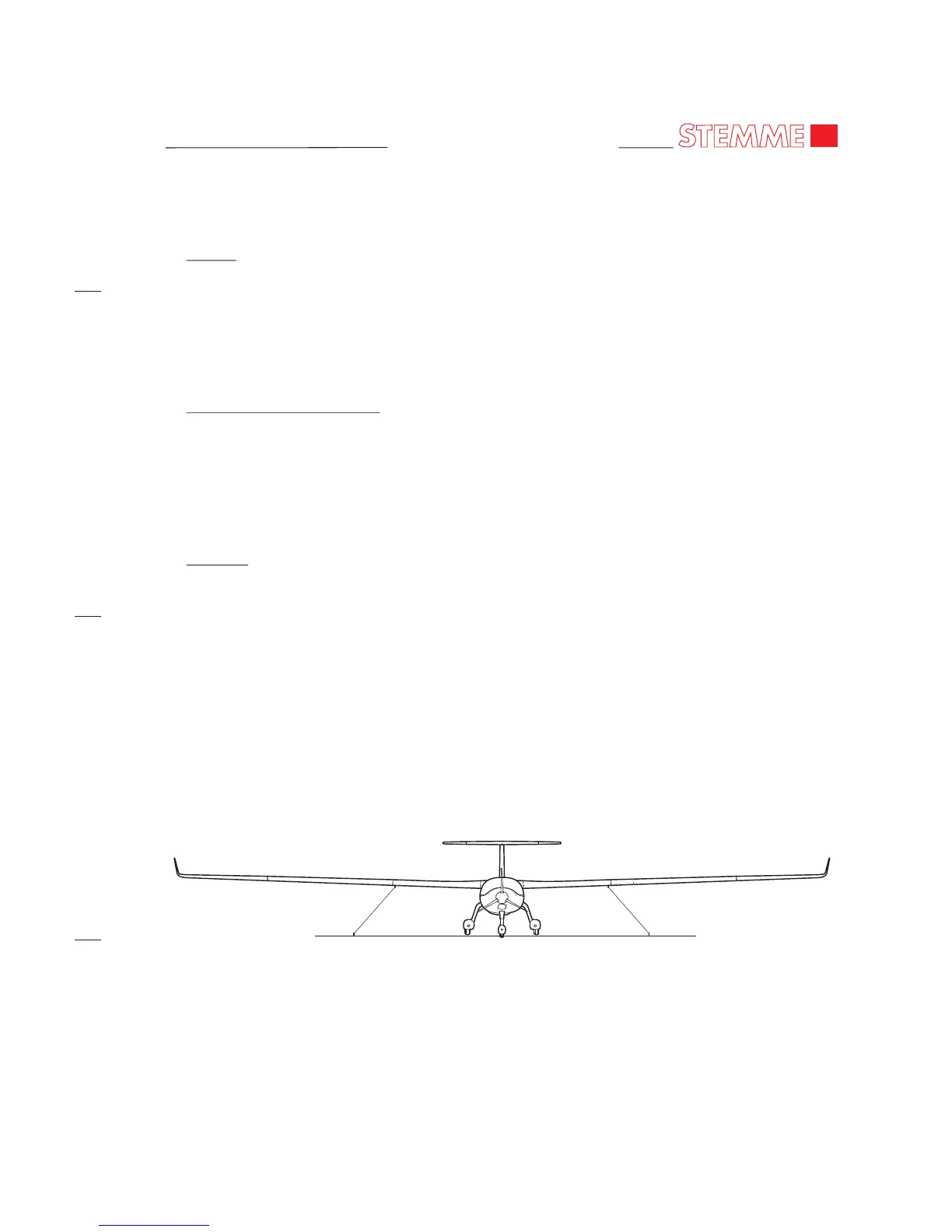MAINTENANCE MANUAL
STEMME TSA-M
MAINTENANCE MANUAL
STEMME TSA-M
10-11-00
Page 202
(5) Brakes
(a) Frequently apply brakes at least once week.
(6) Pitot tube
(a) Install a pitot head cover.
(7) Ventilation of the aircraft
(a) Ventilate aircraft well before store.
(b) In the open air, depending on external conditions (high humidity, high temperatures
etc.) possibly ventilate aircraft several times during storage.
(8) Landing gear, wheels and tires
(a) Landing gear:
It is recommended to jack up the aircraft to relieve load of the landing gear.
(b) Wheels:
Rotate wheels at least once a week 3 - 4 revolutions to avoid brake/disc corrosion.
(c) Tire:
1 Clean any oil or grease from tires and treat with a tire protective.
The aircraft cannot be blocked up:
2 Rotate wheels. Mark position of the tire and date with chalk.
3 Tyre pressure: Visual check daily, weekly check by means of an air pressure gauge.
10-20-00
Page 201
MOORING
1. General
A. If the airplane is temporary stored in the open air, it should always be anchored. Strong wind and
gusts of wind can cause great damage to an aircraft, which is not securely anchored.
B. When the aircraft is parked for a longer duration (over night etc.) it is recommended to use a
hangar when ever that is possible.
2. Tools, Equipment and Material
Required in Quantity Equipment Parts No. Manufacturer
3.B. 2 Tie-Down D580/08 Stemme
Rings
3.B. AR Ropes - Stemme
3. Tie Down
A. Tie-down points are provided on the aircraft to tie-down it securely (Ref. to Fig. 01).
B. Tie-down the aircraft as follows:
(1) Park aircraft, as in section 10-10-00 ”Parking” described manner.
(2) Screw a tie-down ring into the adapter at the underside of each wing.
(3) Connect ropes to the wing tie-down rings. Secure at approximately 45-degree angles to the
ground and secure each rope to a ground anchor point.
(4) Remove all loose parts and foreign items, which can cause damage to the aircraft.
Aircraft Tie-Down Points
Figure 01
Nov 18/11
Nov 18/11
